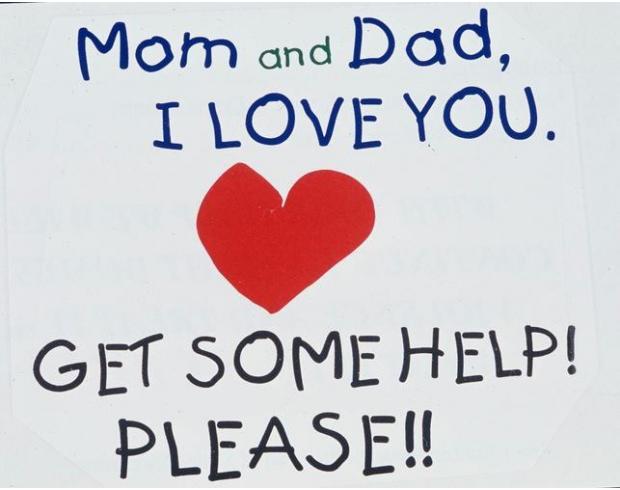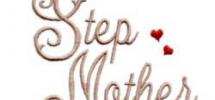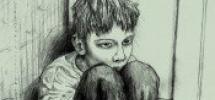The bad beginning to be continued Although pictures speak a thousand words, our family photos never spoke the truth of what went on behind closed doors. Our house had been built with sturdy walls, but our home lacked a true and strong foundation of love. Both of my parents immigrated to the United States and, like most immigrants, brought along their cultural baggage and mindset. Although I will never know objectively how their marriage was in the beginning, according to my mother my father was verbally and physically abusive towards her. Growing up, I watched my parents fight with such passion and intensity that I am surprised, but thankful, that neither of them killed the other (although my mother did threaten my father with various sharp objects during some of their disputes). Nasty words were tossed back and forth like a tennis match, each one trying to beat the other at the vicious game. Sometimes my siblings and I would stand up for our mother, resulting in our father telling us to shut up and stay out of it, even retaliating against us. My parents’ disputes could and would start over anything and everything, although money and invalidating of feelings were two strong sparks. My mother believed divorce was not an option because she could not work and support all of us herself. My father did divorce my mother once in a fit of anger, but then asked for her back. He told me he loved my mother and would never want to divorce her as this would break our family apart. Despite the illusion that our family is together, it is broken. This was the marriage upon which our family was built. Children were brought into this environment because, like many people, my parents never questioned their ability to be good role models nor pondered the responsibility that came with having kids. In fact, it’s a rite of passage – school, marriage and then children – and there is no question or deviation from this. As you might imagine, it was not a nurturing nor loving atmosphere to grow up in. Before we were old enough to understand or defend ourselves, we were thrown into the battlefield and became targets of violence and psychological warfare Faces behind the masks People are often shocked when they learn about a domestic violence case, when they discover a person’s true nature and their hidden actions within the confines of their house. The truth is, looks can be deceiving and there is no way to distinguish someone who is abusive from one who is not by their outward appearance. Usually, the only ones who know the real faces behind the masks are those being abused and anyone the victims choose to tell. There are no tell-tale signs of abusive parents, dysfunctional families or “victims” of abuse. My parents are practicing Muslims who frequent Islamic events and outwardly show their devotion to Islam. My father prays Jumuah and both Fajr and Isha in the masjid. My mother watches religious programs, wears hijab, goes to Umrah whenever she can and is well known and well loved in our community. Our family spends Eid together, goes out to dinner together and even laughs together. We visit other families and other families visit us. None of us children are anti-social deviants; we all have friends and are active participants in society. We are all highly educated, having all graduated from college and some of us graduate school. While outwardly we all seemed “normal”, as is typical of dysfunctional families, each on of us children had our “adapted roles”. Mine was that of the lost child, the one who stayed out of trouble and was mostly overlooked and ignored. Unlike my siblings who rebelled in their own ways and at different times of their lives, I remained a “straight-edge” Muslim. I never drank, smoked, did drugs, had friends of the opposite gender or premarital relationships. I earned good grades, never hung out with “the wrong crowd and, even if I argued it, I never stayed out past my curfew. As hard as I tried to be good, I was never good enough. My parents treated me differently based on their moods. My father’s emotions vacillated between extreme highs (happiness, giddiness, etc) and extreme lows (seclusion, aggression, verbal abuse). He was never big on words of love or kindness, and the primary way he supported us was financially. He never really talked to us except to blame us for something or to insult us. When he was in a jovial mood, he would smile, sing and encouraged me to smile and be happy. To show how fluctuating his mood was, one time he hit me so hard and so many times with a slipper, it broke. Almost immediately after this, he joked that I would now have to buy him a new one. There were at least three times that his violence left marks on my face, leaving me to face the public with signs of his rage. If I was asked about what happened, I fabricated something about hurting myself. My mother scared me that from ever telling the truth, saying that the police would come arrest my father and take us away, creating a scandal in our family. I was also too ashamed to admit to anyone, even my closest friends, that my father physically abused me; I wanted to be a normal child with normal parents, not a victim to be pitied.
2014-04-18 04:44:22
The bad
sign in to comment
Be the first to comment





